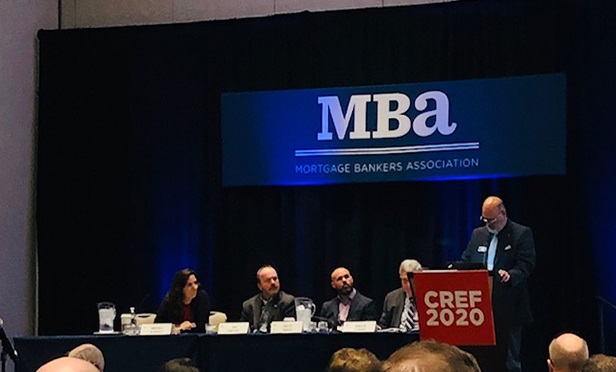SAN DIEGO—What is the top advice consultants and experts give real estate investors interested in entering the healthcare space? Find a good operator/partner for your venture. It is advice worth taking, given the many regulatory hurdles and industry-specific challenges in healthcare.
It's one thing to hear and accept this advice; it is quite another to drill down to truly understand why it is so important. At the recent MBA Cref Convention, Donika Schnell, managing director of Greystone, did the latter.
As one example, she noted that "providers have used a myriad of collection systems over the decades and with those systems, it is hard to know what the real value is with those receivables."
The way to overcome this, Schnell said, is to hire people who really understand third party reimbursement. "You want to make sure they test the claims, the payment plans, but also how good are they at billing and recording the revenue and value of receivables."
What is essential, she added, is to not lend on the invoice date. "You want to lend off the service date. Those kinds of nuances are important …you need the right people and the right collateral in place."
Speaking at the same panel, Roger Lukoff, deputy assistant secretary of healthcare programs at the US Department of Housing, also emphasized the importance of relationships, albeit of a different sort. "The way we are so successful is because of the relationship we have with … the lenders."
According to Lukoff, the US Department of Housing just recently hit the $38-billion mark in terms of assets it manages in the healthcare programs. "We have never been at that level before."
Lender relationships are also key for the sector's future growth. Lukoff said HUD is always looking to expand the portfolio on the hospital side. "If you have been tracking hospitals, the current conditions for healthcare facilities are really unsurpassed."
Another important metric for lenders: Healthcare's operating cash flow is expected to grow through 2020, he added. "M&A activity continues, which is usually a positive to boost revenue and gain scale."
At the same time, he said, the demographics and social challenges continue to grow for the healthcare sector.
"We are seeing increased demand. Things like coronavirus will have a short term impact on healthcare but the healthcare delivery system is ready to confront something like that. We are already seeing people accessing urgent care, emergency services. If you don't have protocols in place to address these types of issues, a lot of things can change the positive outlook on healthcare."
© Touchpoint Markets, All Rights Reserved. Request academic re-use from www.copyright.com. All other uses, submit a request to [email protected]. For more inforrmation visit Asset & Logo Licensing.








